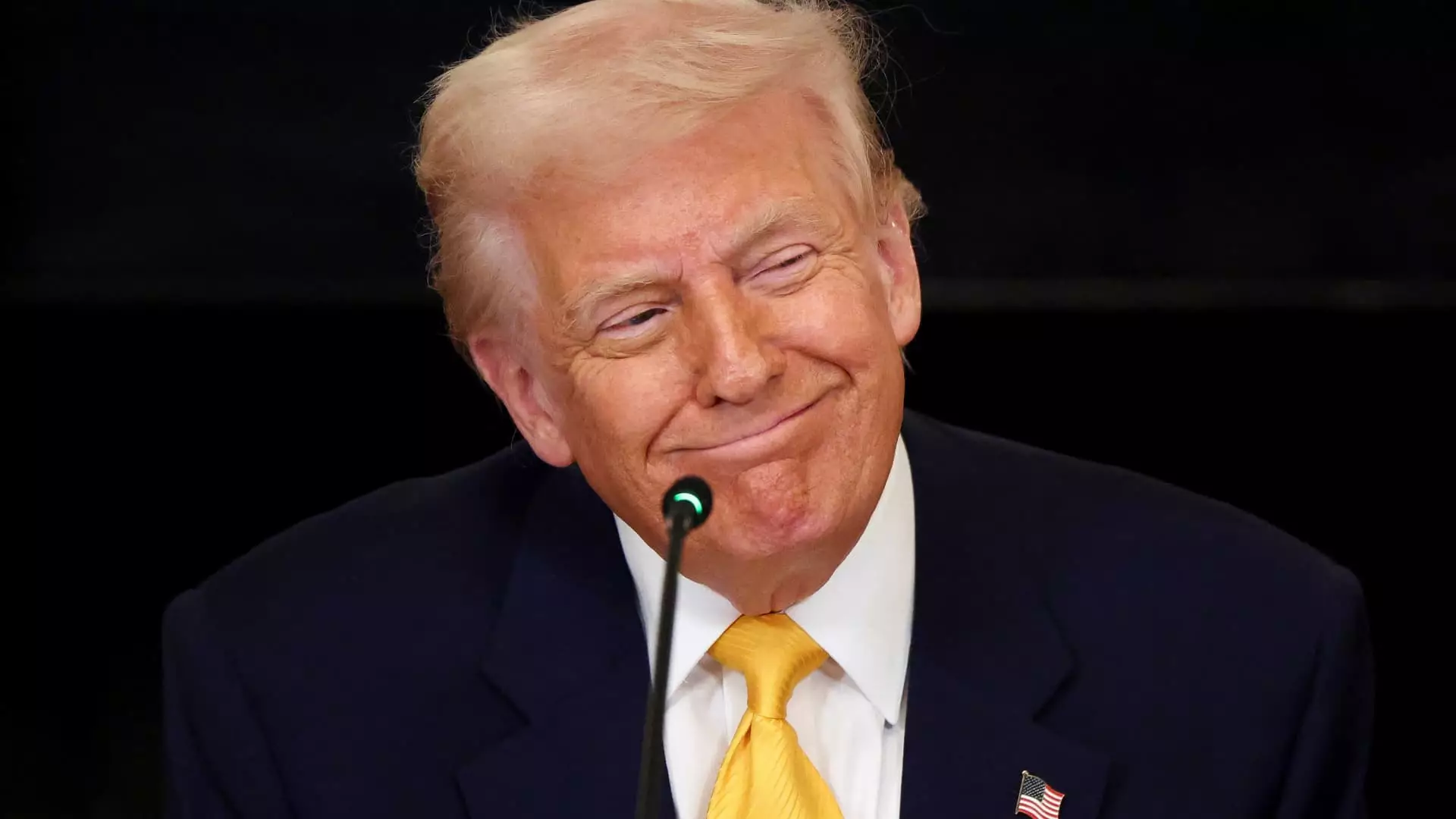President Donald Trump’s cavalier attitude toward impending tariffs is alarming. His dismissive stance toward businesses voicing concerns about potential price hikes and market instability reflects a drastic underestimation of economic dynamics. When Trump declares that his plans for tariffs, starting April 2, will merely “reciprocate” what other nations charge, he seems to conveniently overlook the intricate web of global economics. In a world increasingly interwoven through trade agreements, imposing tariffs could have dire consequences, extending well beyond a simple tit-for-tat arrangement.
The Looming Shadow of Recession
While Trump seemingly brushes aside fears of an economic downturn, it is imperative to acknowledge the Atlanta Fed’s caution regarding a potential contraction. Ignoring these warnings does not equate to their absence. When Trump claims that the changes will ultimately yield a “great” outcome for the U.S., one can’t help but question his grasp of economic fundamentals. The reluctance to accept the possibility of a recession this year is emblematic of a broader trend: a penchant for optimism that disregards cautionary signals. This could lead to underpreparedness in the face of challenging economic realities.
Market Uncertainty and Wild Swings
Wall Street has faced tumultuous days marked by volatility as concerns surrounding Trump’s tariffs become forefront in the minds of investors. Financial markets thrive on predictability. Trump’s statements, which include vague assertions that tariffs “could go up,” contribute to an atmosphere rife with uncertainty, thus affecting investment decisions and confidence among businesses. In a landscape where stability is coveted, Trump’s erratic trade policy doesn’t just rock the boat; it raises the stakes for American businesses already strained by the pressures of global competition.
Globalist Boogeyman or Economic Reality?
By labeling globalists as villains who have “ripped off” the United States, Trump simplifies a complex issue. While there are undoubtedly instances of unfair trade practices, the grand narrative Trump crafts fails to dissect the nuances of international economics. It equates a competitive global market to treachery, thereby stifling a more constructive dialogue about fair trade practices. The rhetoric is not only inflammatory but also dangerous, painting foreign entities as adversaries rather than potential partners in progress.
Consequences of Tariffs: A Double-Edged Sword
While Trump’s administration seeks to shield American interests, the immediate impact on consumer prices could become a double-edged sword. With tariffs on steel, aluminum, and plans for Canadian dairy impacting everyday goods, the higher costs could inadvertently crush middle-class Americans—those he claims to represent. This bureaucratic attempt at ‘making America great again’ risks losing sight of the working families who ultimately bear the brunt of increased expenses.
The delicate dance between protecting American jobs and fostering healthy trade relations is under threat. The promise of making America economically prosperous cannot solely rely on protectionism; it must also harness diplomatic strategies and collaborative international economic policies. For the sake of millions of Americans, it’s essential to tread carefully on the fragile economic landscape, lest we plunge ourselves into a recession that was entirely avoidable.


Leave a Reply